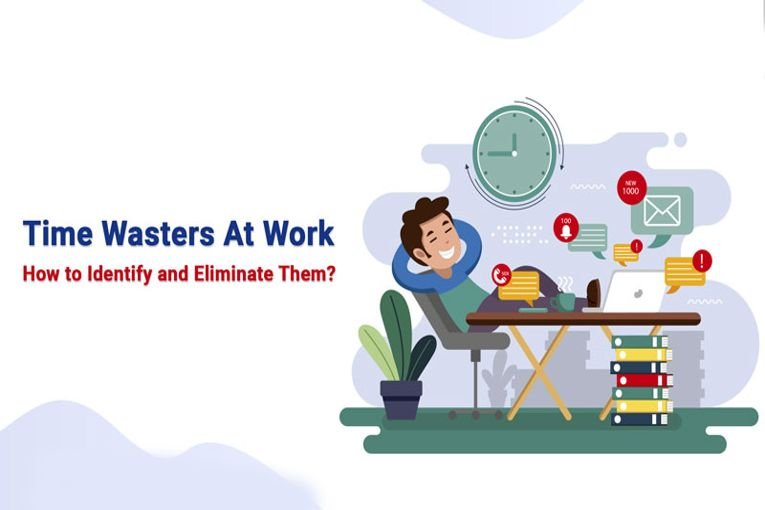Identifying Time Wasters at Work
Time is a valuable resource in any workplace, and as such, it is essential to identify and address time wasters to ensure optimal productivity. Time wasters can take many forms, from unnecessary meetings and distractions to inefficient processes and procrastination. By recognizing these obstacles, individuals and organizations can take proactive steps to deal with them effectively.
One common time waster in the workplace is excessive meetings. While meetings are often necessary for collaboration and decision-making, they can easily become a source of inefficiency if not managed properly. To combat this, it is important to evaluate the purpose and structure of each meeting and only attend those that are essential. Additionally, setting clear agendas, time limits, and action items can help keep meetings focused and productive.
Another prevalent time waster is multitasking. While it may seem like multitasking allows individuals to accomplish more in less time, it can actually result in decreased productivity and quality of work. Research has shown that multitasking can lead to a loss of focus and concentration, ultimately prolonging the time needed to complete tasks. To avoid this trap, it is essential to prioritize tasks, focus on one task at a time, and minimize distractions.
Dealing with Time Wasters
Addressing time wasters at work requires a proactive approach and a commitment to change. Here are some strategies to effectively deal with time wasters:
1. Time Audit: Conducting a time audit can help individuals identify where their time is being spent and pinpoint areas of inefficiency. Keep a log of daily activities for a week, categorize them, and assess how much time is devoted to productive tasks versus time wasters. This exercise can provide valuable insights into where improvements can be made.
2. Prioritization: Prioritizing tasks based on their importance and deadlines is crucial for effective time management. Use tools such as to-do lists, task managers, or project management software to organize tasks and allocate time wisely. By focusing on high-priority tasks first, individuals can ensure that important work is completed efficiently.
3. Setting Boundaries: Establishing boundaries and learning to say no can help individuals avoid being pulled into time-wasting activities. Politely decline unnecessary meetings, limit non-urgent interruptions, and communicate your availability to colleagues. Setting clear boundaries can protect your time and allow you to focus on meaningful work.
4. Time Blocking: Time blocking involves dedicating specific blocks of time to focus on particular tasks or projects. By creating a schedule that allocates time for essential work without interruptions, individuals can enhance their productivity and concentration. Use tools like calendars or time management apps to implement time blocking effectively.
5. Eliminating Distractions: Distractions such as social media, email notifications, or noisy environments can disrupt workflow and lead to time wastage. Minimize distractions by turning off notifications, setting designated times for checking emails or messages, and creating a conducive work environment. By eliminating distractions, individuals can maintain their focus and productivity.
Cultivating Time Management Skills
Effective time management is a skill that can be cultivated through practice and mindfulness. By incorporating the following habits into daily routines, individuals can enhance their ability to deal with time wasters and improve their overall productivity:
1. Goal Setting: Setting clear, achievable goals provides direction and motivation for daily tasks. Break down larger goals into smaller, manageable steps and track progress regularly. By aligning tasks with specific objectives, individuals can work towards meaningful outcomes and avoid aimless activities.
2. Time Awareness: Developing a sense of time awareness involves being mindful of how time is spent throughout the day. Monitor time usage, identify patterns of inefficiency, and adjust behaviors accordingly. By becoming more conscious of time, individuals can make better decisions about task prioritization and time allocation.
3. Continuous Learning: Embracing a growth mindset and a willingness to learn can improve time management skills. Seek out resources, workshops, or training programs that focus on time management techniques and strategies. By staying informed and open to new approaches, individuals can refine their time management practices and adapt to changing work demands.
4. Self-Care: Prioritizing self-care activities such as exercise, relaxation, and adequate sleep is essential for maintaining productivity and focus. A healthy lifestyle can improve energy levels, cognitive function, and overall well-being, making it easier to deal with time wasters and sustain productivity in the long term.
5. Reflection and Adjustment: Regularly reflect on time management practices, assess their effectiveness, and make adjustments as needed. Evaluate what strategies are working well and where improvements can be made. By continuously refining time management techniques, individuals can optimize their productivity and achieve better work-life balance.
Conclusion
Dealing with time wasters at work requires awareness, discipline, and a commitment to continuous improvement. By identifying common time wasters, implementing effective strategies, and cultivating strong time management skills, individuals can enhance their productivity, reduce stress, and achieve their professional goals. Through proactive effort and a focus on efficiency, individuals can reclaim their time and maximize their impact in the workplace.







